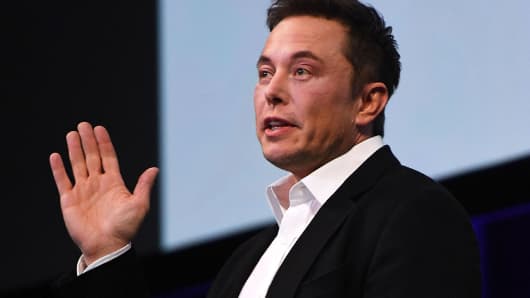OMAHA — Elon Musk is taking on Warren Buffett, and their differences run deeper than jokes about candy and medieval fortifications.
At Berkshire Hathaway's annual meeting over the weekend, I relayed a question from a shareholder to Mr. Buffett about a comment Mr. Musk had made a couple days earlier.
"I think 'moats' are lame," Mr. Musk had said during a Tesla earnings call. It was a criticism of economic principle Mr. Buffett that coined in 1999 and that has become something of a mantra for his faithful: Invest in businesses "that have wide, sustainable moats around them."
Such moats, Mr. Buffett has said, are made of the competitive advantages that benefit major brands and companies, like distribution networks, pricing power and brand reputation.
But to Mr. Musk, they are a metaphor for being stuck in the past. "If your only defense against invading armies is a moat, you will not last long," he said. "What matters is the pace of innovation — that is the fundamental determinant of competitiveness."
At a time when technology is upending even old-line industries that once seemed impenetrable to competition, might Mr. Musk be right?
"Elon may turn things upside down in some areas," Mr. Buffett said. "I don't think he'd want to take us on in candy," suggesting Berkshire's See's Candies division enjoyed an unassailably wide moat. The quip elicited laughter from the 20,000 shareholders who packed the CenturyLink Center.
Mr. Musk answered the challenge immediately, saying he was starting a candy company. "And it's going to be amazing," he wrote on Twitter.
Not only that, Mr. Musk said, he planned "to build a moat and fill it with candy" — making it impossible for Mr. Buffett to resist sinking his money into the venture.
The repartee was good for some chuckles and clickbait headlines, but the mini-spat masked a more serious and significant debate taking place across corporate America: Have the traditional moats shrunk?
When direct-to-consumer brands like Dollar Shave Club have been able to take on consumer giants like Procter & Gamble's Gillette — so much so that Unilever bought Dollar Shave Club for $1 billion — are any businesses still safe? Mr. Buffett owns Kraft Heinz, for example, but could upstart food companies one day overtake it, breaking through the substantial network of distribution and marketing arrangements — and brand loyalty — that Kraft Heinz has built up over decades?

